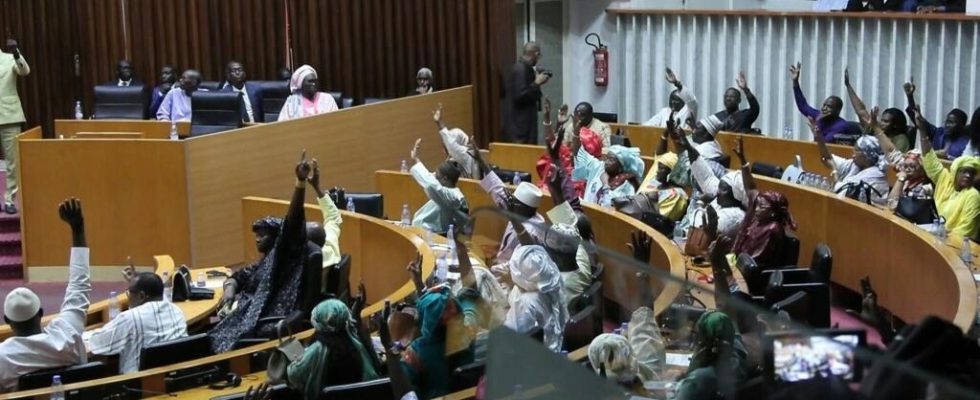The National Assembly adopted an amnesty law for crimes committed between February 2021 and 2024, linked to protests or political accusations.
1 min
With our correspondent in Dakar, Léa-Lisa Westerhoff
After a very long day of debate, this amnesty law was finally adopted by a fairly narrow majority, 94 votes for and 49 votes against. The majority deputies benefited from the support of parliamentarians from Karim Wade’s party, the Senegalese Democratic Party (PDS).
The objective of this law is to reconcile the country after three years of an extremely tense political climate. But the text is far from being unanimous in Senegalese societywho fears that this law will allow impunity for those who committed crimes during this period.
Sixty people have died in protests over the past three years, according to Amnesty International. No one responsible has yet been prosecuted and will no longer be able to be after this amnesty. Only compensation for victims on a case-by-case basis is provided for by this law.
This text should, however, allow the release of a certain number of political detainees, including the candidate of the opposition party Pastef, Bassirou Diomaye Faye. The latter is still in pre-trial detention for calling for insurrection, in particular.
Another potential beneficiary of this amnesty is the country’s number one opponent: Ousmane Sonko. It will be up to the judge to decide who is amnestied or not, the Minister of Justice repeated several times this Wednesday evening.
